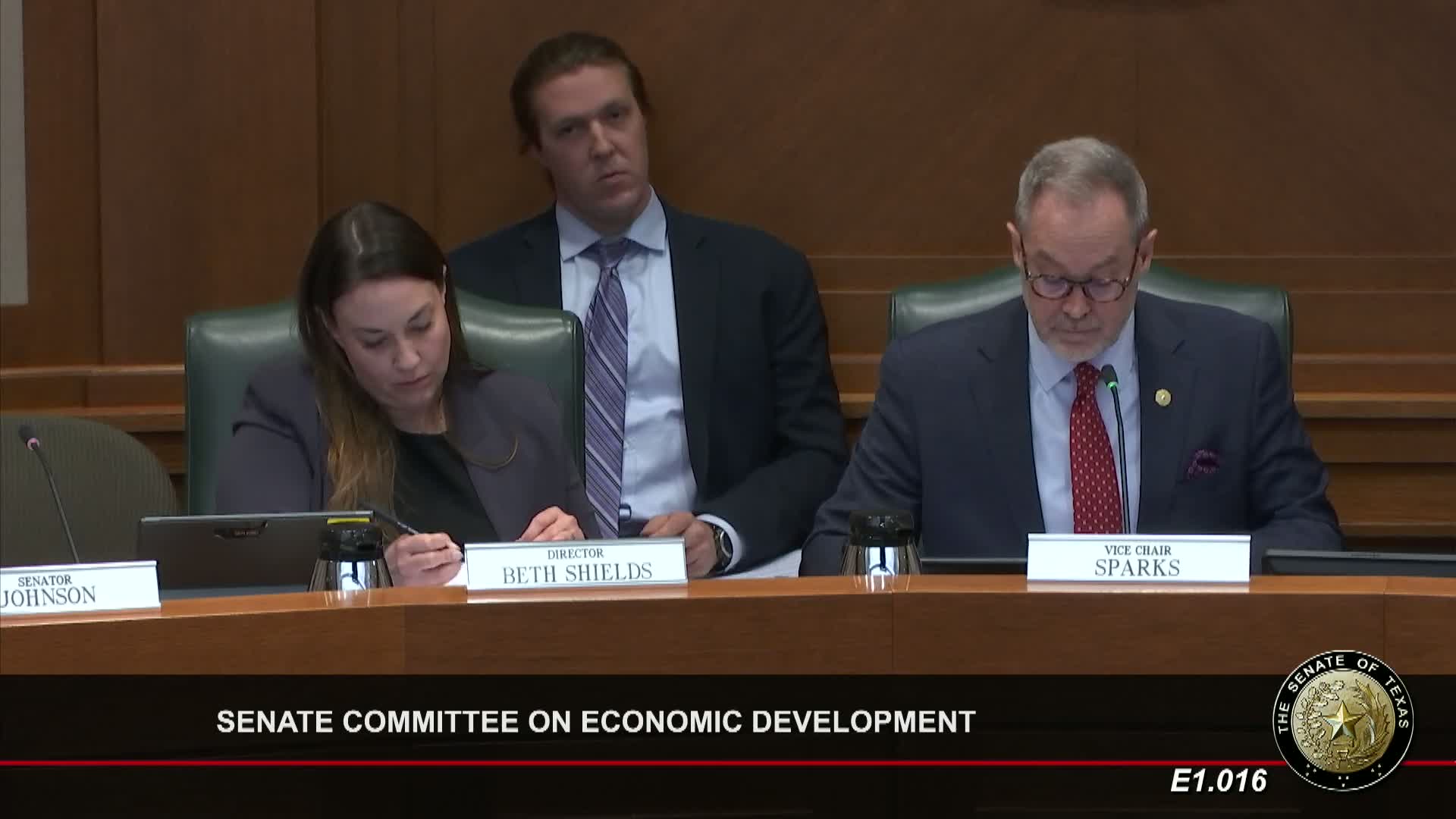Senate committee hears broad testimony on bill to bar county tax abatements for wind and solar
Get AI-powered insights, summaries, and transcripts
Subscribe
Summary
Senate Bill 17-54 would prohibit county property tax abatements for wind, solar and standalone battery storage that sell at wholesale; committee heard hours of testimony from rural residents, industry groups and policy organizations and left the bill pending.
Senators in the Committee on Natural Resources & Economic Development heard hours of public testimony on Senate Bill 17-54, legislation that would bar county-level property tax abatements for wind, solar and most battery storage projects that sell power or ancillary services at wholesale.
The bill’s sponsor, Senator Turnbull, told the committee federal subsidies and market conditions have skewed investment toward weather-dependent resources and said SB 17-54 would align county abatements with prior school-district exclusions. “SB 17-54 prohibits tax abatements for renewable energy facilities that sell energy or ancillary services at wholesale,” the author said, and set the bill’s effective date as Jan. 1, 2026.
The measure drew extensive public comment from rural residents who said large-scale solar and battery projects have harmed property values, generated noise and caused environmental damage. John Highsmith, identifying himself as a resident of Pecan Plantation in Hood County, said the Rain Lily project “would literally have the Brazos River on 3 sides” of his neighborhood and argued, “The idea of these Solar Best LLCs getting, in essence, rewarded for inflicting damage on ordinary Texans is especially irksome.” Charlie Cody, who said his 20-acre farm is surrounded by 1,200 acres of solar, said his property value was “now 0.”
Opponents from the clean-energy industry warned of consequences for grid expansion and costs. Mark Stover, executive director of the Texas Solar and Storage Association, testified against SB 17-54, saying solar and storage are “best positioned to help Texas meet its load growth challenges” and that the bill “picks winners and losers.” The association said local governments voluntarily offer abatements and that the incentives have helped attract roughly $120 billion of clean-energy investment to Texas.
Policy groups and some witnesses supported the bill. Brent Bennett of the Texas Public Policy Foundation testified in favor, arguing federal subsidies for wind and solar are large relative to state abatements and that ending county abatements would reduce market distortion. Several rural witnesses and county residents said developers did not deliver lasting local benefits promised at the time abatements were approved.
Committee members discussed the tension between protecting landowners and preserving options to attract generation. Senator Johnson said property-tax abatements are the wrong tool if the goal is to increase dispatchable generation, and Senator Schwartner and others noted federal incentives drive much investment decisions. The sponsor and other senators pressed that the bill would remove one state subsidy while not preventing renewables from being built without abatements.
No vote was taken. The bill was left pending subject to the call of the chair.
